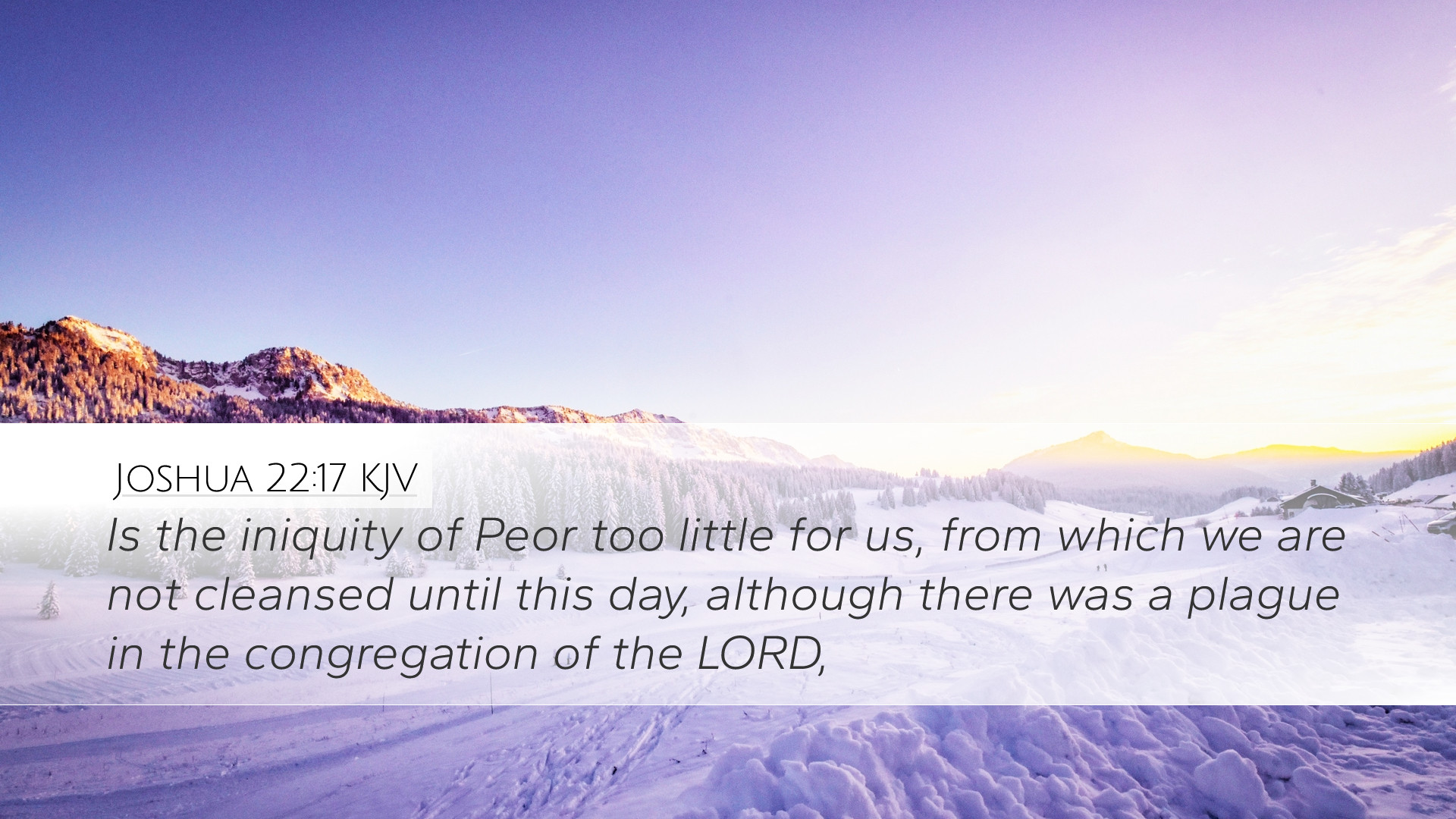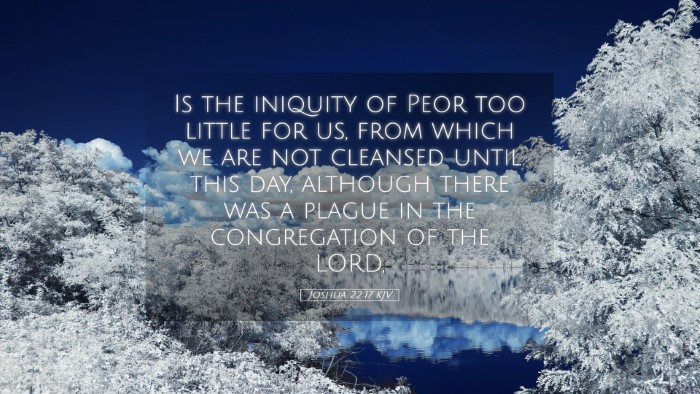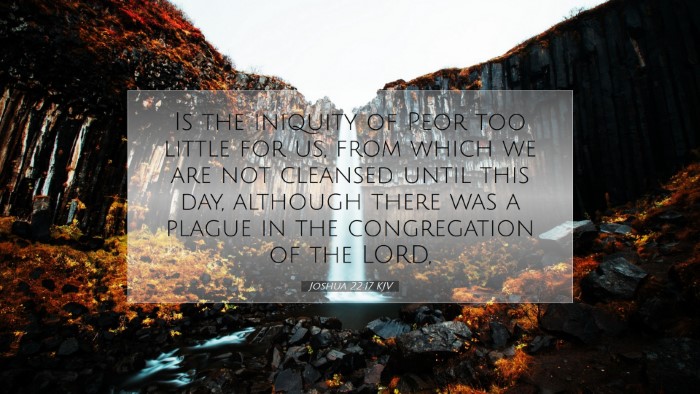Commentary on Joshua 22:17
Joshua 22:17 states:
"Is the iniquity of Peor too little for us, from which we are not cleansed until this day, although there was a plague in the congregation of the Lord?"
Introduction
This verse finds itself situated within the broader context of the Israelites’ return to their lands after the conquest of Canaan. It highlights a crucial moment of tension concerning faithfulness and the consequences of sin within the community of God’s people. The sentiments expressed in this verse draw heavily upon prior events, specifically the sin of Peor, and serve as a reminder of the importance of maintaining holiness in the camp of Israel.
Analysis of the Verse
The reference to "the iniquity of Peor" takes the readers back to Numbers 25:1-9, where the Israelites, seduced by the Moabite women, engaged in idolatry and immorality. This resulted in severe judgment from God, evidenced by a deadly plague that afflicted the congregation. The mention of this sin and its lingering effects serves as a warning, illustrating the seriousness with which God takes covenant violations.
Insights from Commentators
Matthew Henry
Henry highlights the gravity of sin and its repercussions on the community of believers. He states that the iniquity of Peor should serve as a continual reminder for the Israelites about the consequences of forsaking God. The phrase "too little for us" suggests that the evils of past sins carry weight not only for individuals but for the entire community, urging agreement on the standards of holiness expected by God.
Albert Barnes
Barnes elaborates on the collective aspect of sin and judgment, pointing out that the reference to the "plague in the congregation" suggests a symbolic understanding of how individual actions impact the whole body. He stresses that the Israelites are reminded that their covenant relationship demands vigilance and purity, as communal integrity is paramount in their walk with God. The echoes of previous judgments serve to reinforce the necessity of faithfulness to God’s commands.
Adam Clarke
Clarke delves deeper into the implications of the second generation of Israelites facing the same temptations as their ancestors. He suggests that being aware of past mistakes should engender a profound sense of responsibility. The verse emphasizes the need for the Israelites to uphold their identities as God's chosen people, a notion that carries significant weight for contemporary believers as well. Clarke cautions against complacency, suggesting that a proper understanding of sin's nature can lead to a more intentional pursuit of holiness.
Theological Implications
This passage invites us to consider several theological themes:
- The Nature of Sin: Sin, as illustrated here, is not merely an individual concern but a communal responsibility.
- The Memory of Judgment: Historical events involving divine judgment serve as teaching moments for subsequent generations, reminding them of their obligations to live righteously.
- Covenantal Responsibility: Believers today are also called to maintain purity, reflecting on how personal conduct affects the broader community of faith.
Application for Today
For pastors, students, and theologians, Joshua 22:17 is a clarion call for awareness and action. Pastoral leadership must explore the implications of corporate sin in their congregations, guiding them toward accountability and holiness. The underlying message serves as a reminder that the church, as a body, must reckon with its past and present to ensure that it walks faithfully with God.
Practical Considerations:
- Teaching on Holiness: Regularly emphasize the importance of personal and communal holiness within the church.
- Creating Accountability Structures: Foster environments where believers can hold one another accountable in love.
- Historical Reflection: Use biblical history as a teaching tool to underscore the seriousness of sin and the grace available in Christ.
Conclusion
In summary, Joshua 22:17 serves as a powerful reminder to the children of Israel and to contemporary believers alike that sin has consequences not only for the individual but for the community. Drawing upon the insights of Matthew Henry, Albert Barnes, and Adam Clarke, we understand that maintaining a right relationship with God requires diligence in guarding against sin. Past lessons, especially the grave consequences of the iniquity at Peor, remain pertinent as we strive to honor our covenant with God today. The passage beckons us to reflect, repent, and recommit to holy living as a vibrant expression of our faith community.


